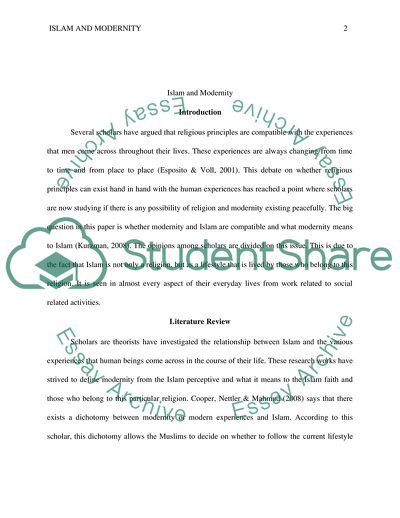Cite this document
(Islam and Modernity Essay Example | Topics and Well Written Essays - 2250 words, n.d.)
Islam and Modernity Essay Example | Topics and Well Written Essays - 2250 words. https://studentshare.org/sociology/1852487-sociology-of-islam-asa-style
Islam and Modernity Essay Example | Topics and Well Written Essays - 2250 words. https://studentshare.org/sociology/1852487-sociology-of-islam-asa-style
(Islam and Modernity Essay Example | Topics and Well Written Essays - 2250 Words)
Islam and Modernity Essay Example | Topics and Well Written Essays - 2250 Words. https://studentshare.org/sociology/1852487-sociology-of-islam-asa-style.
Islam and Modernity Essay Example | Topics and Well Written Essays - 2250 Words. https://studentshare.org/sociology/1852487-sociology-of-islam-asa-style.
“Islam and Modernity Essay Example | Topics and Well Written Essays - 2250 Words”. https://studentshare.org/sociology/1852487-sociology-of-islam-asa-style.


